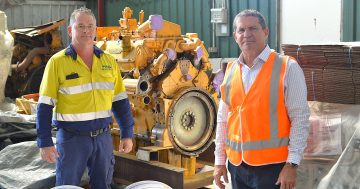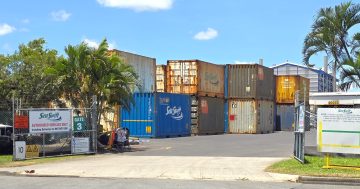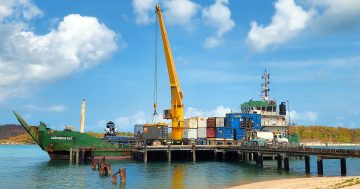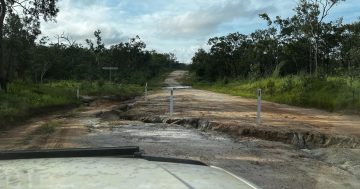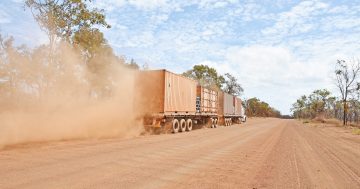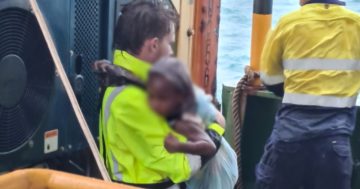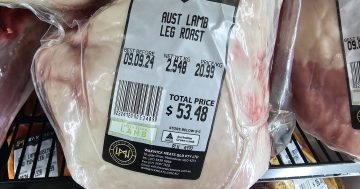
Sea Swift CEO Dwayne Freeman is supportive of a freight subsidy.
NORTHERN Australia’s biggest marine freight company says it opened up its books to help the TCICA-commissioned report into a freight equalisation subsidy.
Sea Swift chief executive officer Dwayne Freeman said increasing costs were having an impact on both the company and customers.
“It’s something we would be supportive of but it has got nothing to do with the profitability of Sea Swift or us taking some of the money or propping up our profitability,” he said.
“A (freight equalisation subsidy) should be purely around finding a way to provide the service to these communities and getting it there at a lower cost.”
Mr Freeman said it was hard to keep the cost of freight down when travelling large distances.
“There are probably 14 touch points between the product getting from the southern states all the way up to communities,” he said.
“As a supplier, we have to continue to maintain a margin to be able to reinvest in our business.”
One way to reduce costs in the Cape and Torres Strait would be to improve efficiency at ports.
“One of the things we need to discuss is the infrastructure that we have to deal with,” the CEO said.
“We run a configuration of vessels that is limited by landing equipment and infrastructure in most (ports).”
State and federal government investment at ports would allow Sea Swift to bring bigger vessels and improve efficiency.
Mr Freeman said remote ports in the Northern Territory were an example of investments that were paying dividends at a local level.
“In the NT, we are putting larger landing craft into the regions because the infrastructure can handle it,” he said.
“It’s like a Dash-8 versus a 747. The differentials in terms of efficiency are massive.”
However, Mr Freeman believed that major investment was on the government’s radar.
“The announcement of a cost of living summit last year (which was postponed) is a sign that they are aware of the situation,” he said.
Mr Freeman said Sea Swift was doing all it could to keep prices as low as possible and that the board was considering its options around future rate rises.
“It’s a very big decision for us because the reputation of our organisation and the impact of our rates on the community is taken very seriously,” he said.


